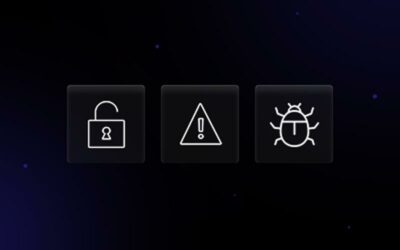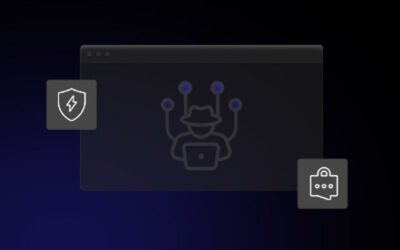The internet has become a major boost for e-commerce and traditional business as far as marketing and business transactions are concerned. Tools such as websites, servers, and computers make it easy for entrepreneurs to keep tabs on business performance and transactions.
However, the data you have stored in your computer is always at a risk of malicious activities. Spreading viruses is such an easy thing. One wrong click on an ad infected with malware is all it takes. Cybercriminals are intelligent people, they are well equipped with information regarding technology. They know where to look, and how to look.
When a hacker gains access to your personal files or business bank accounts, it’s catastrophic. That’s why safe browsing techniques are what you need to protect yourself from malicious attacks.
1) USING SECURE PASSWORDS
It goes without saying that using a secure password is a fundamental step in protecting your data against any form of breach. Most browsers have a specified format that your password should follow. Most browsers rate your password as weak, strong, and very strong.
To make your password strong, use at least one upper case, special characters, and numbers. With such measures, it would be hard for a hacker to penetrate your site even when using brute-force programs. Another important point is to avoid using the same passwords across your various accounts as it increases the chances of being vulnerable to hacking.
Google Chrome comes with a built-in password manager that will help you easily access your accounts without having to input your password every time you log in since the password and username fields will auto-populate.
2) WHAT BROWSER DO YOU USE?
There are a ton of browsers on the internet to choose from. As an entrepreneur, a browser that is easy to navigate through could be your preference. However, the security of the browser should be a significant factor when choosing a browser to access your site. A safe browser will protect you from phishing, spam, and malware.
Google Chrome, Microsoft Edge, and Mozilla Firefox are the most reputed safe browsers. You also can use extensions like Guardio to secure your browsing.
3) REGULARLY UPDATE YOUR SOFTWARE
Software updates are a common thing amongst developers. It is prudent to check for operating system updates, browser updates, and plugin updates. Most software, if not all, has loopholes that hackers can exploit and gain access to your site. Updates are important because developers try to address these vulnerabilities frequently. Failing to update your software leaves you vulnerable to any form of attack.
Luckily, app-stores have an auto-update feature. When this feature is enabled you will receive a pop-up notification to update your software; do so as soon as possible. Hackers are always busy looking for software or sites that have vulnerabilities, and you can’t afford to hand a hacker such an opportunity. Updating your software not only ensures improved security but also having recent features that will improve your experience with the software.
4) USE A VIRTUAL PRIVATE NETWORK (VPN) TO HIDE YOUR IP
Having a secure browser and a strong password is a good level of security against malicious activities. However, hiding your IP (Internet Protocol) using a VPN (Virtual Private Network) takes your security level a notch higher.
When you are connected to the internet, your device sends or receives information compiled as data packets. With these data packets, a person can trace your IP and know your exact location. A VPN hides your IP address by creating a private network over your server. VPN encrypts the data getting sent to the server from your computer. This way, a hacker can’t decrypt what your computer is sending. Essentially, you will be safe as you browse.
Hackers can easily hack into public Wi-Fi such as airport Wi-Fi or café Wi-Fi. These Wi-Fis are highly insecure. If you must use them, make sure you use a VPN to hide your IP. There are free VPNs, and some are paid. Some of the owners of these VPNs sell your data to other people. Before getting yourself a VPN, do some background study and get yourself a VPN that will protect you.
5) USE TWO-STEP VERIFICATION TO PROTECT YOUR ACCOUNTS
As an entrepreneur, data integrity is crucial. Data integrity is maintained when data can only get accessed by authorized personnel. For instance, the financial statements of your business don’t need to be accessed by a lot of people.
On top of having a secure password, two-step verification limits the people who can access your account. According to Risher, “Two-step verification helps keep out anyone who shouldn’t have access to your account by requiring you to use a secondary factor on top of your username and password to log in to your account,”.
If you are using Google Chrome, with your Google account password you can access your Google Drive, Google Maps, Gmail, and Google Docs. It’s an avenue where a hacker can access multiple areas of information about you or your business. However, Google incorporates this feature in its browser. When you try to log in to your sites from a new device, Google will send a code to your phone number either through a phone call or text message. You can’t access your account without this code, and this means that no one apart from you can access this account.
Also, it’s worth noting that there’s a lot of free software on various websites. But some are embedded with malicious links that hackers can use to gain access to your accounts. Be careful with what you are downloading, and the sites that you are using.
CONCLUSION
Browsing through the internet is sometimes very informative and fun. There are so many things that you can learn while browsing. As a businessperson, you will learn a lot of ways you can grow your business. However, there is also a lot of threat and fraud. One unlucky click can make you lose a lot of valuable data. There are very many malicious people waiting to prey on you. However, these tips can make your web browsing safe and productive.




